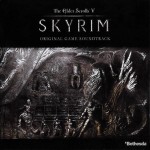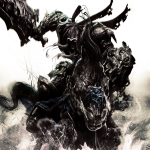It’s looking like 2012 is going to be a big year for the Wii despite the launch of the Wii U is looming. Titles like Xenoblade and Retro City Rampage will certainly hit this year, and it’s possible that The Last Story and Dragon Quest X could slide in late into 2012. But first up is Rhythm Heaven Fever, Nintendo’s latest installment in the Rhythm Heaven series created specifically for the Wii.
We had a blast with Rhythm Heaven back on the DS and with Rhythm Heaven Fever at E3 last year, so does this latest title live up to the series name, or does it fall flat as another gimmicky motion-control title for the Wii?
Find out in our review.
First order of business: there are no waggle controls in Rhythm Heaven Fever. This game could have quickly deteriorated into a frustrating mess if motion controls had been implemented, so I offer my praise to the team for avoiding that potential pitfall. The touch-screen controls on the DS game often got in the way, and WarioWare: Smooth Mooves, although fun, proved challenging based solely on the controls alone.
So, what’s Rhythm Heaven Fever all about? Honestly, it’s more of the same. There are tons (50) main stages to clear, each coming as their own unique rhythm game. Players press A or A and B together in time with the music or an on-screen cue. Very simple, yes, but also deceptively challenging. Fortunately, however, Rhythm Heaven Fever is much more lenient than previous titles in the series, letting you progress with an ‘okay’ even without performing all that well on the particular stage. Exceptions come, however, with the remix stages that are presented every 5 stages which incorporate segments from the previous four stages in fast-paced succession. These are not so kind, and I found myself having to try them again and again to get a nearly perfect score before I was able to progress.
To add replay value, you can reattempt stages to achieve a “superb” score to unlock mini-games, and every once in a while you’ll be prompted with a challenge to get a perfect score on a particular stage, rewarding you with a medal and a prize such as a piece of music that you can listen to from one of the menus or an article of reading that has to do with that stage.
Aside from the 50 stages, there’s also a café where you can converse with the resident barista about the stages you’ve completed, an unlockable section of rhythm toys that are fun to tinker around with for a bit and prove pretty different compared to the main stages, endless games that, as their name would suggest, allow you to perform a rhythmic exercise for as long as you can muster, and a few other bonus stages to extend your game time. There’s also a two-player mode that unfortunately has to be unlocked, but that could provide some extra play time as well.
Now, you’re probably wondering how long the game will take you to complete. I completed it in about six hours with at least an hour of that time being spent on the last stage which you have to do nearly perfectly to pass. It’s really challenging, but also very rewarding when you complete it.
That’s pretty much all I have to say about the game, so let’s jump into some of the musical aspects. Eccentric artist Tsunku♂ returns with some Nintendo staff composers to handle the game’s varied music. I found myself enjoying many of the menu themes an awful lot as well as the remix pieces which are generally upbeat and energetic. Tsunku♂ does offer a number of English vocal themes that are poppy and somewhat cheesy, but at least they match well with the incredibly vibrant and eclectic visuals. Of note is the fact that I actually enjoyed the music in a lot of the stage tutorials more than the music for the stages themselves. The tutorials tended to feature 8-bit style themes that were pretty catchy although repetitive (they’re not intended to long-term listening).
Some of my favorite stages are See-Saw, which, as the name suggest, sports two fellows jumping up and down rhythmically on a see-saw with some catchy rock music in the background and Monkey Watch with some great rhythmic offbeats. One of the hardest games of all outside of the aforementioned remixes is the freestyle Tambourine stage which requires you to copy the exact rhythmic sequence that is performed, which proves extremely challenging.
Some games will be extremely familiar to fans of the series, including Built to Scale and Karate Man, both of which are a lot of fun here as well, although not nearly as catchy musically. My favorites, however, are Double Date, which is a great pop ballad which I imagine will be Dale North’s target if he decides to remix a track from the game, Ring Side which is absolutely ridiculous and hilarious and had me laughing out loud as a reporter interviews a sweaty wrestler after his match, and Samurai Slice which sports some cool samurai rock and a funny story superimposed over the action. Cheer Reader was another great one that was not only humorous, but had me feeling incredibly good about myself as I kept up with the rapid pace of the cheer.
That whole idea of obstruction that I mentioned in my description of Samurai Slice in an interesting one. In this stage , a narrative takes place that makes it difficult to see what’s going on in terms of the things you need to slice, but other stages work this in as well. The best example I can think of is Air Rally where you’re playing racquet ball in an airplane. Your partner will move further away from you, making you believe that there will be a delay in the time it takes the ball to reach you, but in actuality, it takes the same exact time, creating a big mind trip. It’s actually easier to perform well on this one looking away from the screen, as the shift in visual cues will throw you off every time. I thought this was a very clever game mechanic.
While I loved nearly every stage featured in Rhythm Heaven Fever, there were a few duds. I got kind of tired of the “march in a line” stages, which come up pretty frequently, and I also had high hopes for a stage called Love Rap which had huge potential with its great musical backing, but was executed pretty poorly in terms of rhythm.
In all, though, I have very little to complain about. I doubt I’ll ever get perfect on most of these stages, but I’m okay with that. I feel that the game tested and refined my sense of rhythm while keeping me incredibly entertained with its stimulating visuals, catchy music, and variety of rhythmic play styles. All of this is available for the asking price of $29.99, so I can’t really be all that hard on the game with the few minor complaints that I had.
I recommend checking it out if you’re a fan of the series or of rhythm games in general. It just may be one of the best games on the Wii this year!
Let us know what you think of the Rhythm Heaven series and of Rhythm Heaven Fever in particular. And don’t forget about the launch party tonight in LA where you can get your hands on the game early!
Tags: Music Reviews, Nintendo, Reviews, Rhythm, Rhythm Heaven, Rhythm Heaven Fever, Videogame, Wii












































